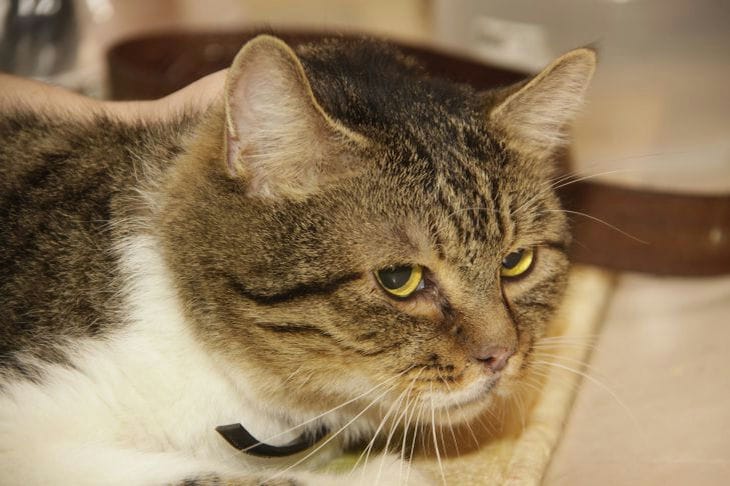Cats are territorial animals that use their scent to communicate with other cats and to show their presence.
Both males and females, both sexually mature and sterilized individuals, can mark their territory.
There are several ways in which cats leave their marks.
• Rubbing against an object, person or another animal. Cats have special glands on their muzzle, paws and around the anus that secrete a secretion with a specific smell. In this way, they mark their favorite owners or objects that they consider their own.
• Butting, rubbing the head and cheeks. This is another way to leave a scent from the cheek glands, which can be called the cat's "calling card". Such actions also express trust and affection.

• Avoid burying feces. Cats may leave their excrement in plain sight to show dominance or displeasure.
• Scratching: When a cat scratches furniture or walls, it not only sharpens its claws, but also leaves a scent from the glands on its paw pads.
• Urine spraying. This is the most unpleasant way for a person to mark territory. The cat stands sideways to a vertical surface and releases a stream of urine with a strong smell. This is how she declares her sexual maturity, readiness for mating, or stress.
Why do cats mark their territory?
Marking territory is a natural instinct of cats, which helps them survive in the wild. Smell serves to exchange information with other cats: gender, age, health, mood, etc. In addition, smell creates a feeling of security and comfort in the cat in its territory.
However, marking territory at home is not always necessary and desirable. Especially if it causes inconvenience to the owners or other animals in the house. In such cases, you need to understand the reason for such behavior and try to eliminate it.
How to stop a cat from marking its territory
If you are sure that your cat is marking territory for physiological or psychological reasons, and not because of a medical condition, you can try the following tips to wean her off this behavior.
• Neuter or spay your cat. This is the most effective way to reduce or eliminate markings related to sex hormones. It is best to do this before puberty to prevent your cat from developing a marking habit.
• Increase the number of litter boxes in your home. If you have more than one cat, each cat should have its own litter box and another shared litter box. Place the boxes in different places so that the cats do not compete for access. Clean the boxes regularly and use litter that your cat likes.
• Eliminate sources of stress for your cat. Try to create a calm and safe environment for your cat, where it will not experience fear or anxiety. Avoid sudden changes in its routine or environment. Spend more time with your cat, play with it and pet it. Use special pheromone sprays or collars that help calm the cat.
• Remove the smell of the marks. If the cat has already marked a place, you need to thoroughly clean it from the smell of urine so that it does not repeat its action. To do this, you can use special products for removing animal odors or folk remedies such as hydrogen peroxide, lemon juice or citrus essential oils. Do not use ammonia or chlorine-containing products, as they intensify the smell of urine.
• Block access to spraying areas. If you notice that your cat prefers to spray certain areas of the house, try blocking access to them or making them less attractive to your cat. For example, you can place a litter box, food bowl, or cat toy there. You can also cover these areas with foil, film, or other material that will create noise or discomfort for your cat.
Punishing a cat for marking is useless and harmful. The cat will not understand the reason for your anger and will experience even more stress. It is better to reward it for correct behavior and create comfortable conditions for it in the house.








